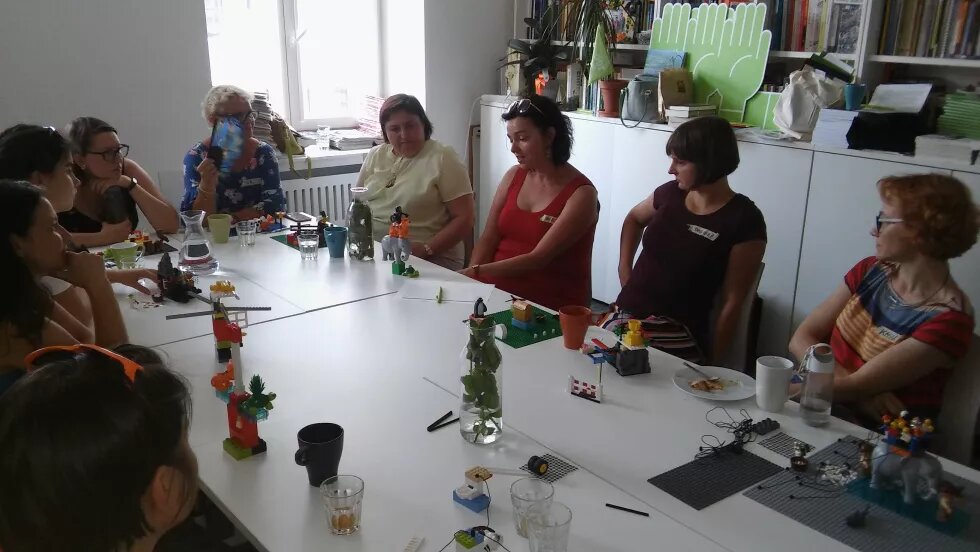At the end of June, in the Warsaw office of the Heinrich Böll Foundation, an incredible group of women met. A dozen female activists from two coal-mining regions – the Konin area and Silesia – came together to discuss how to make the voices of women better heard in the debate about ecological transformation. In order to find answers, they used a lot of their own wisdom and… Lego bricks.

The participants came from very different places. Silesia has a special role in the minds of the Polish people. It is seen as a land of heavy industry and, first and foremost, the land of coal. This is how the region is perceived, but, since the fall of communism, the situation has changed dramatically. Many mines have been closed, and, out of 4.5 million inhabitants, less than 100 thousand still work in coal mines. Smog is one of the main political and social issues facing the region. Katowice – the capital of the region – which hosted the COP in 2018, advertises itself with the slogan: „Katowice, the city of gardens”.
Konin is situated in central Poland, on the way from Warsaw to Berlin. This is where lignite – the most polluting type of coal – is being mined and burned. This city was built around coal, and the other industries connected to it, and it continues to be heavily reliant on it for jobs. However, the depletion of lignite resources and EU climate policy have made the end of the industry a very real possibility. Contrary to in Silesia, where officials do not want to admit that the transformation is near, in Konin, reflections on “life after coal” have already started.
The meeting with activists from both regions was a continuation of the Heinrich Böll Foundation’s long-term interest in the debate about the future of Polish energy; a debate which needs to be broadened. Currently, it is too often limited to technologically heavy calculations of megawatts, megawatt-hours, tonnes of coal, sulphur and nitrogen oxides, as well as the geopolitics of energy resources. This debate is dominated by men and omits crucial questions. Which social groups should decide about the future of coal regions? How do we make sure various perspectives are heard? How do we ensure gender and intergenerational equity? What role should local cultural heritage and identity play in the transition?
A cooperation between the Democracy and Human Rights Programme and the Climate & Energy Programme of the Heinrich Böll Foundation in Warsaw led to the conclusion that strengthening the voices of women activists in these regions would help to progress this agenda. Who would know how best to do this? The women themselves!
This is where the idea for the meeting came from. A very diverse group came to Warsaw: long-term, seasoned activists; new members of the growing climate movement; NGO workers; green-minded politicians; the leader of Fridays for Future; a researcher of social movements …
During a day-long workshop, participants did some deep-diving into the state of the environmental and women's activism in their regions. Later, they used Lego bricks to portray the activist in the context of her environment reflecting the condition of women working for social change on the local level. It quickly turned out that the biggest need for the group is the opportunity to get to know each other, exchange ideas and learn from one another. So much experience and willingness to share was present in the room!
A more extensive project has taken shape as a result of this meeting. The Ecological Women`s Academy will consist of a series of workshops for the group, including, among others, workshops on media skills, group dynamics, the psychological wellbeing of the activist and content issues connected to the Just Transition. This will be accompanied by a cycle of regular peer-supervision meetings, creating space for activists to assist each other in their daily challenges on a regular basis. The program will be organised by Fundacja Rzecz Społeczna (Common Thing Foundation), a women-led organization from Katowice. The next workshop, which includes a study trip to the lignite open-pit mines near Konin, will take place in October.
Photo gallery:


